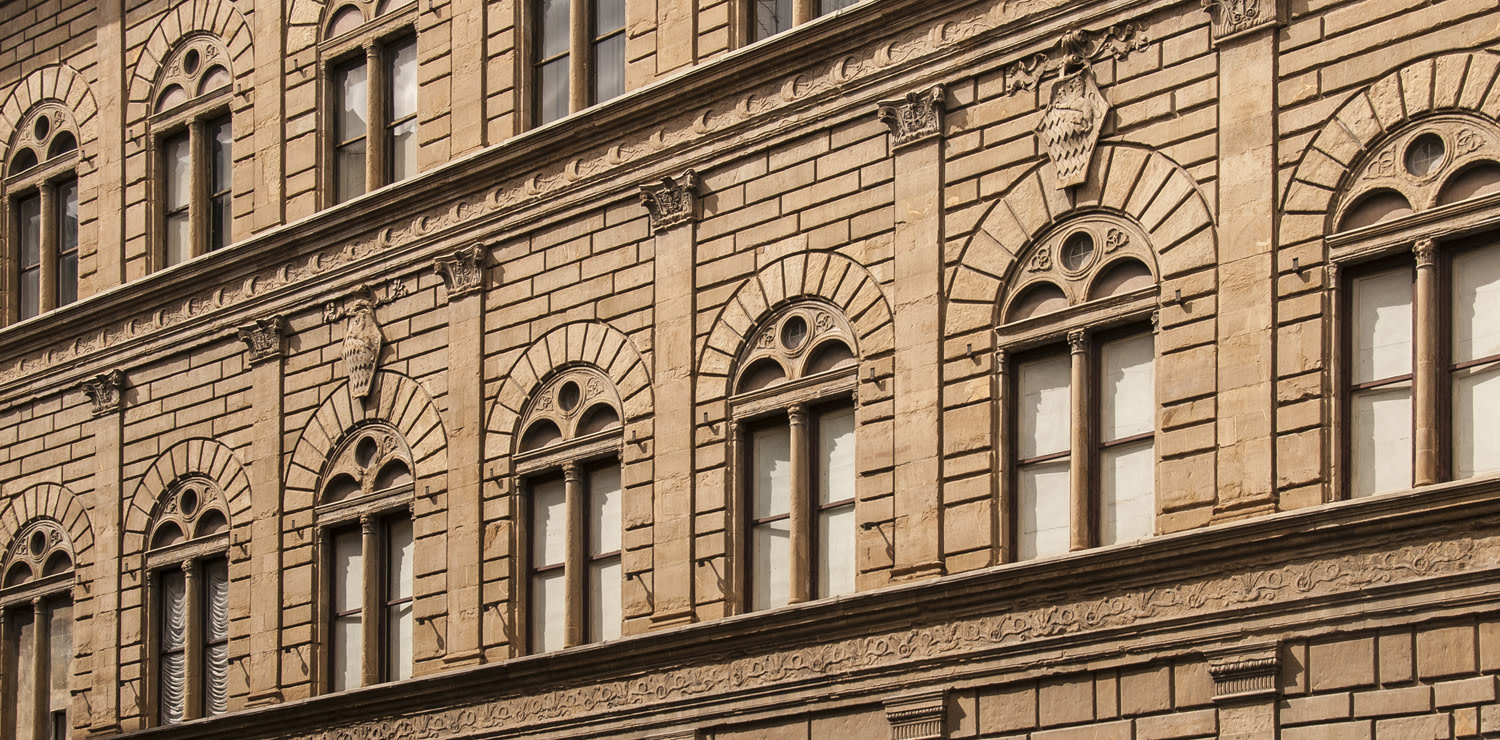They are the symbol of the splendor of the ancient Renaissance families of Florence. For you the top list of the most beautiful historic houses to visit in the city
Every day, Florence’s private palaces recount a fragment of the past and update the pages of a legend, that of a city of artists who, over the centuries in uninterrupted fashion, created the beautiful and the good.
 Palazzo Vecchio
Palazzo Vecchio
Palazzo Vecchio
The interior houses major Renaissance sculptures, such as The Genius of Victory by Michelangelo and Judith and Holofernes by Donatello.
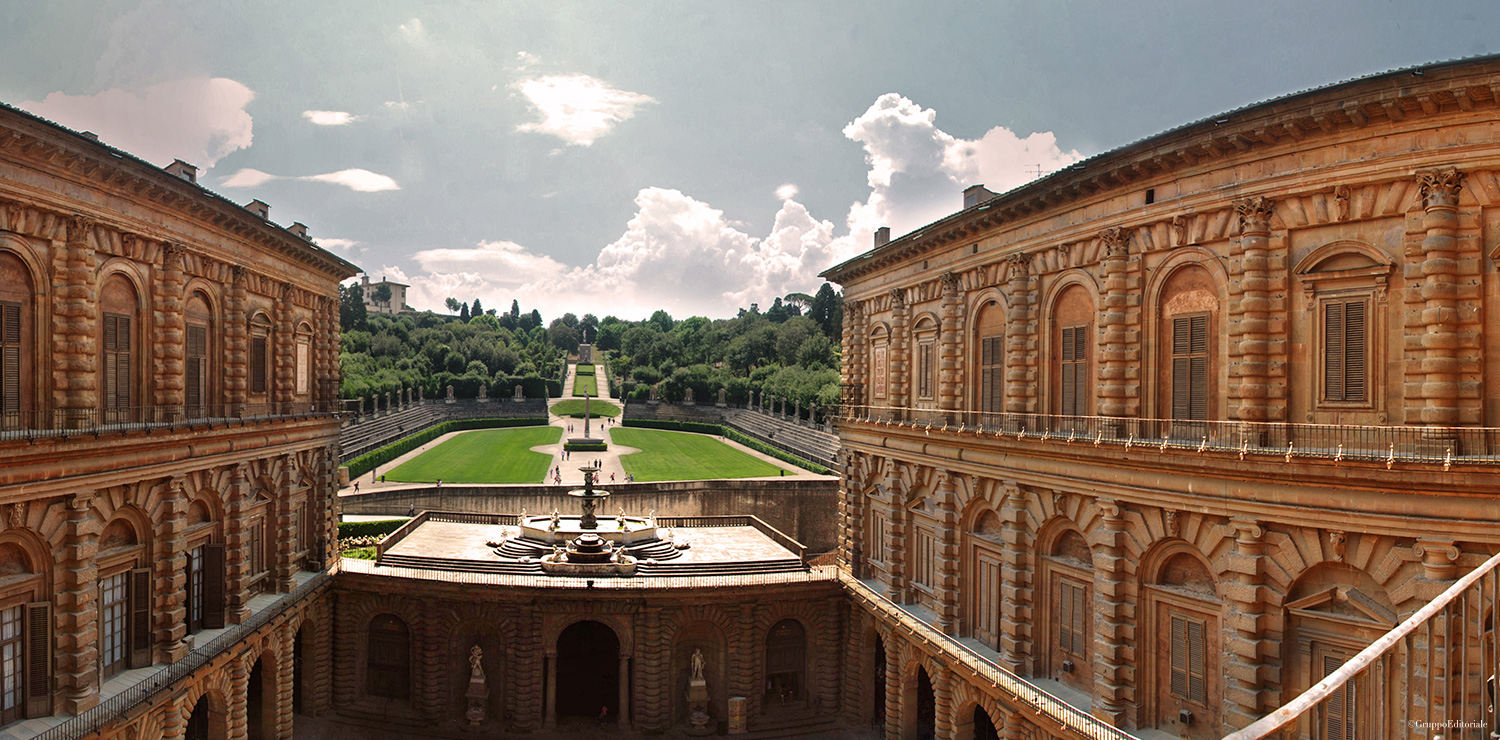 Palazzo Pitti
Palazzo Pitti
Palazzo Pitti
Many museums housed in one magnificent palazzo: Art Gallery, Costume Gallery, Palatina Gallery and Royal Apartments.
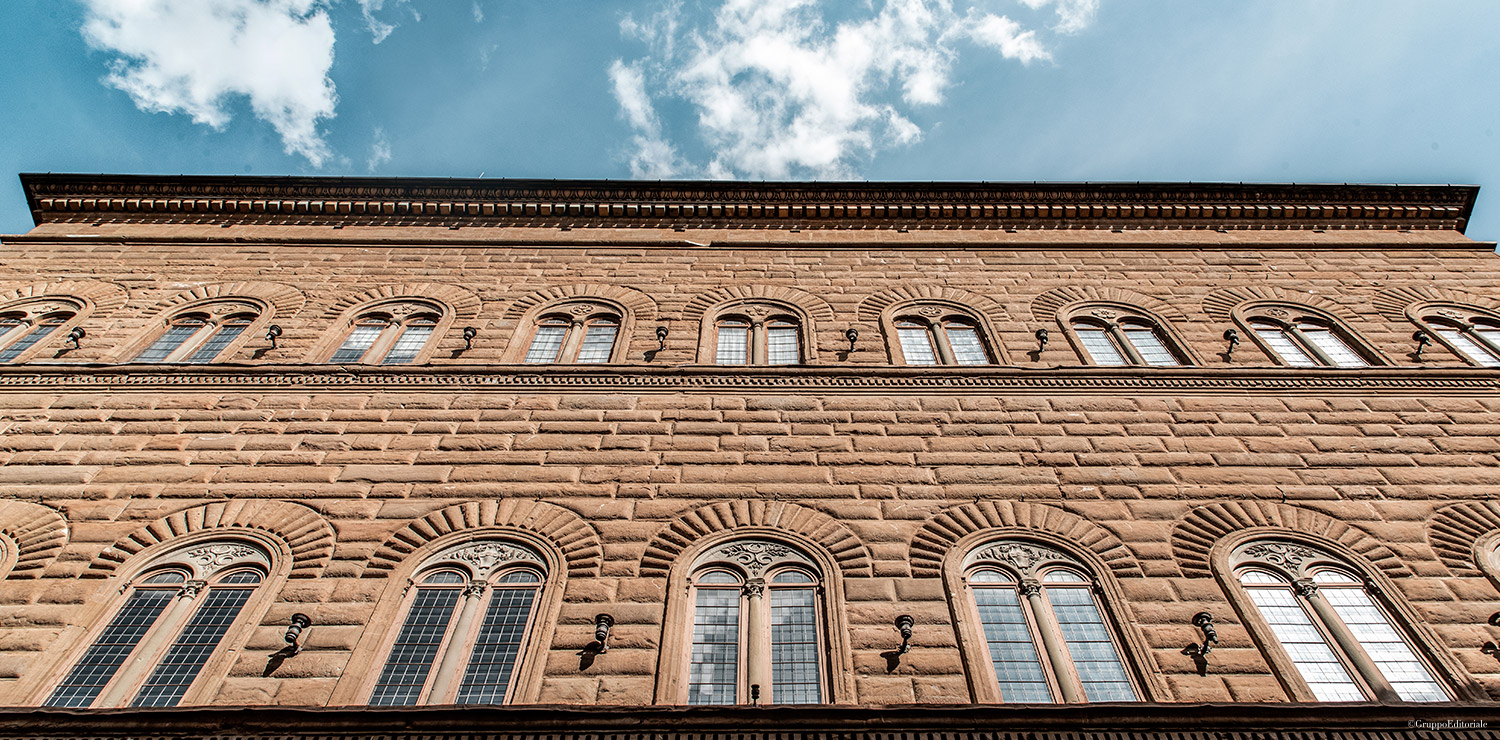 Palazzo Strozzi
Palazzo Strozzi
Palazzo Strozzi
Palazzo Strozzi in Florence is one of the most beautiful Italian Renaissance palaces. Of imposing size (fewer than 15 buildings were destroyed to make room for him), is located between the homonymous Via Strozzi and Piazza Strozzi and via Tornabuoni, with three grand portals identical on many sides.
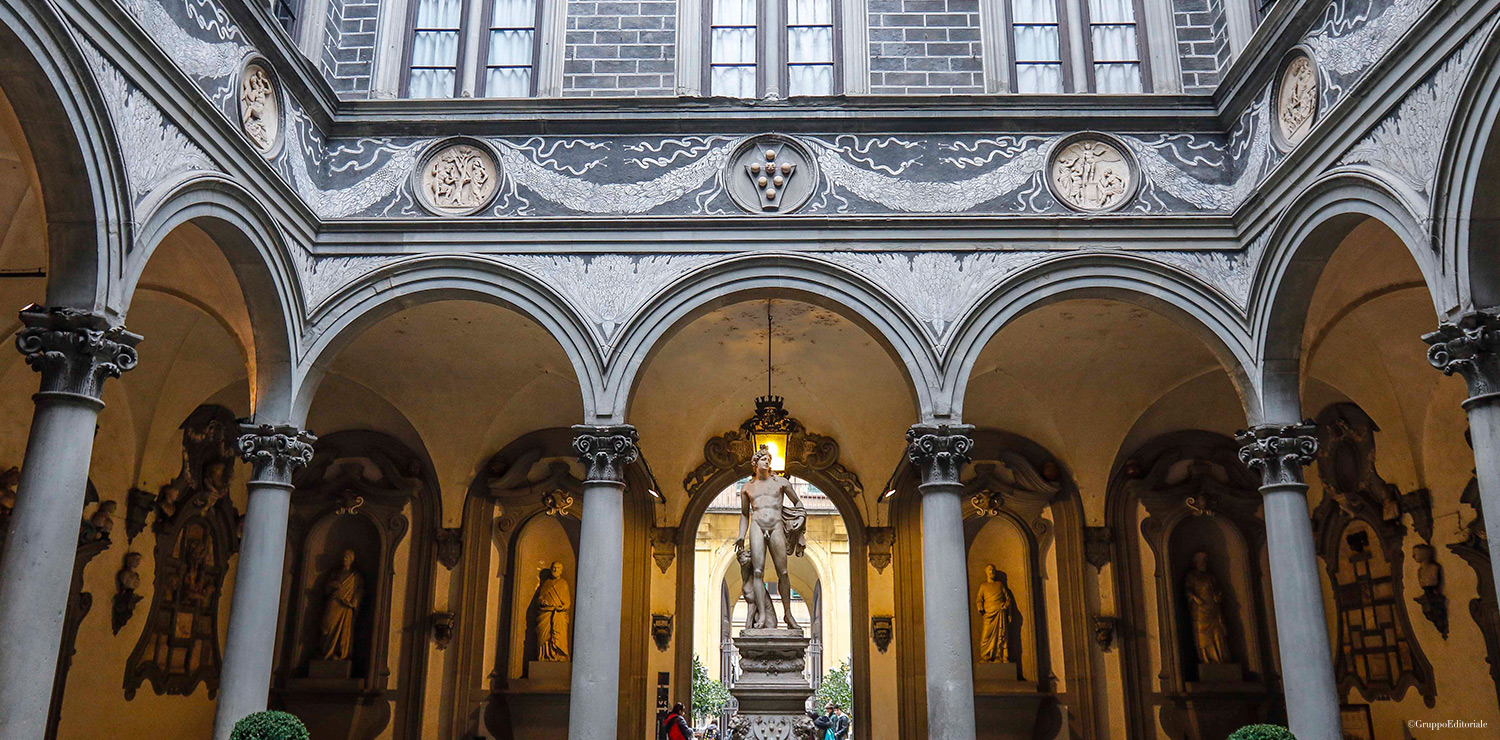 Palazzo Medici Riccardi
Palazzo Medici Riccardi
Palazzo Medici Riccardi
Built in the mid-15th century by Michelozzo, the building became the prototype of Renaissance civil architecture and symbol of the political and cultural supremacy of the Medici in Florence.
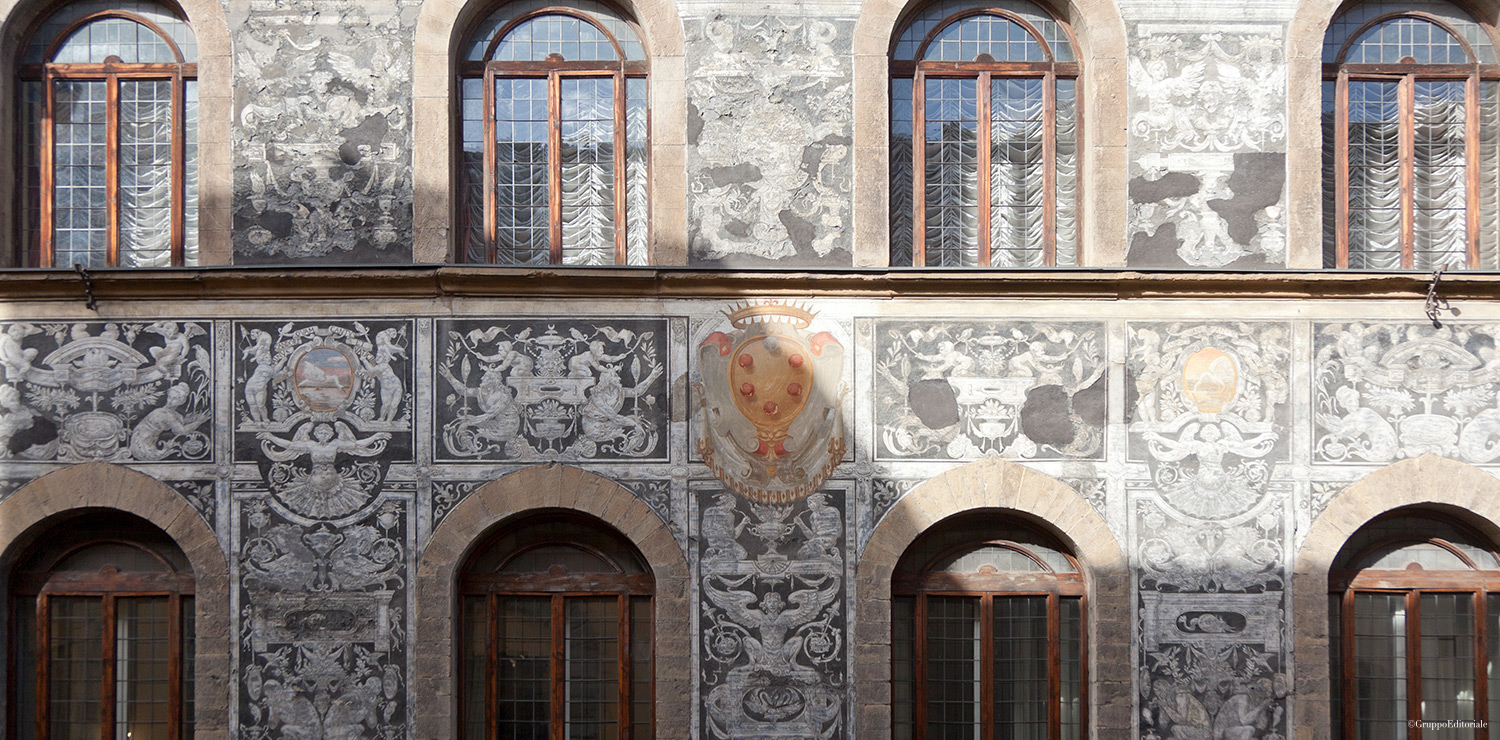 Palazzo di Bianca Cappello
Palazzo di Bianca Cappello
Palazzo di Bianca Cappello
Buontalenti was commissioned with the construction of the palazzo by Francesco I de’ Medici for the beautiful young Venetian lady, his lover and later wife. The magnificent façade features a sgraffito decoration by Poccetti.
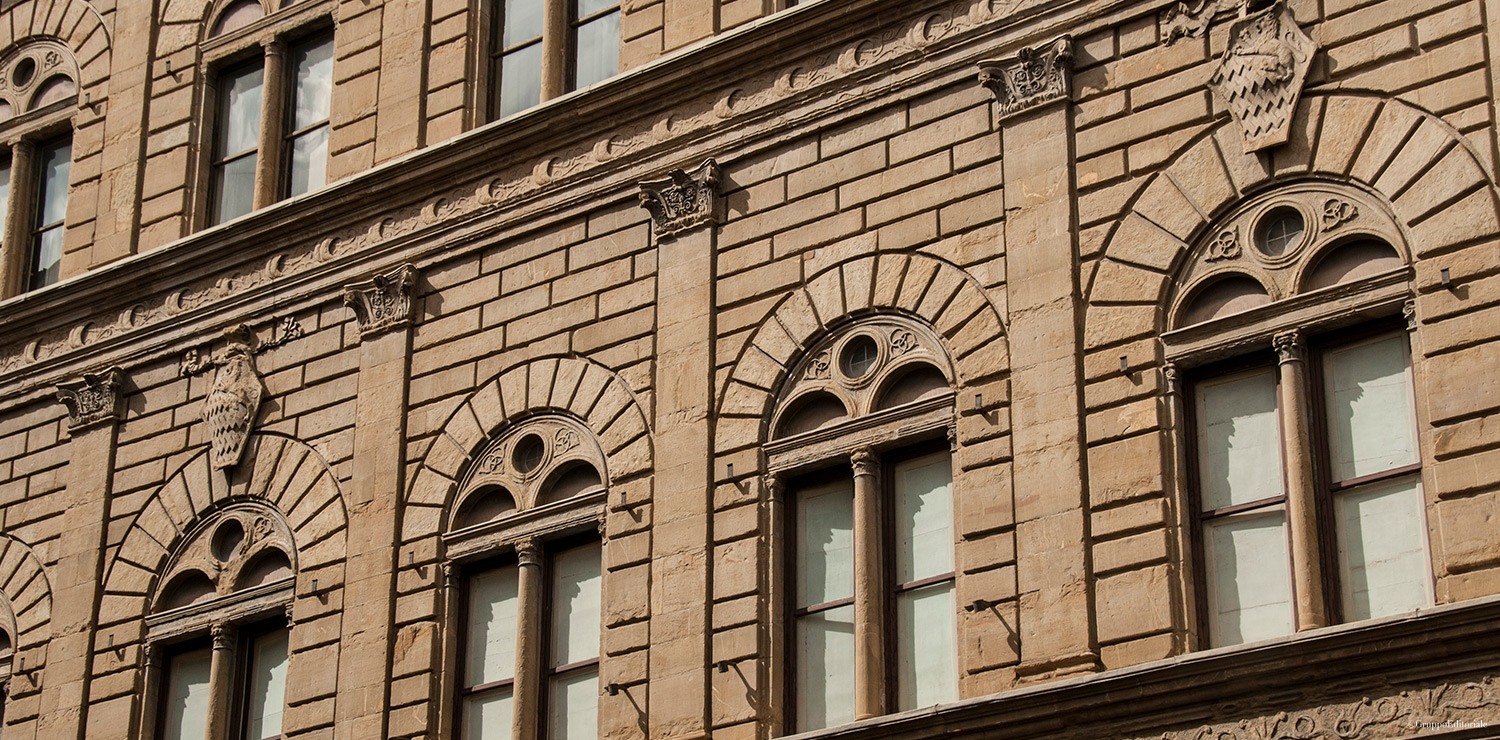 Palazzo Rucellai
Palazzo Rucellai
Palazzo Rucellai
The building, which now houses the National Alinari Museum of Photography, was built between 1446 and 1451 by Bernardo Rossellino to the design of Leon Battista Alberti and commissioned by Giovanni Rucellai.
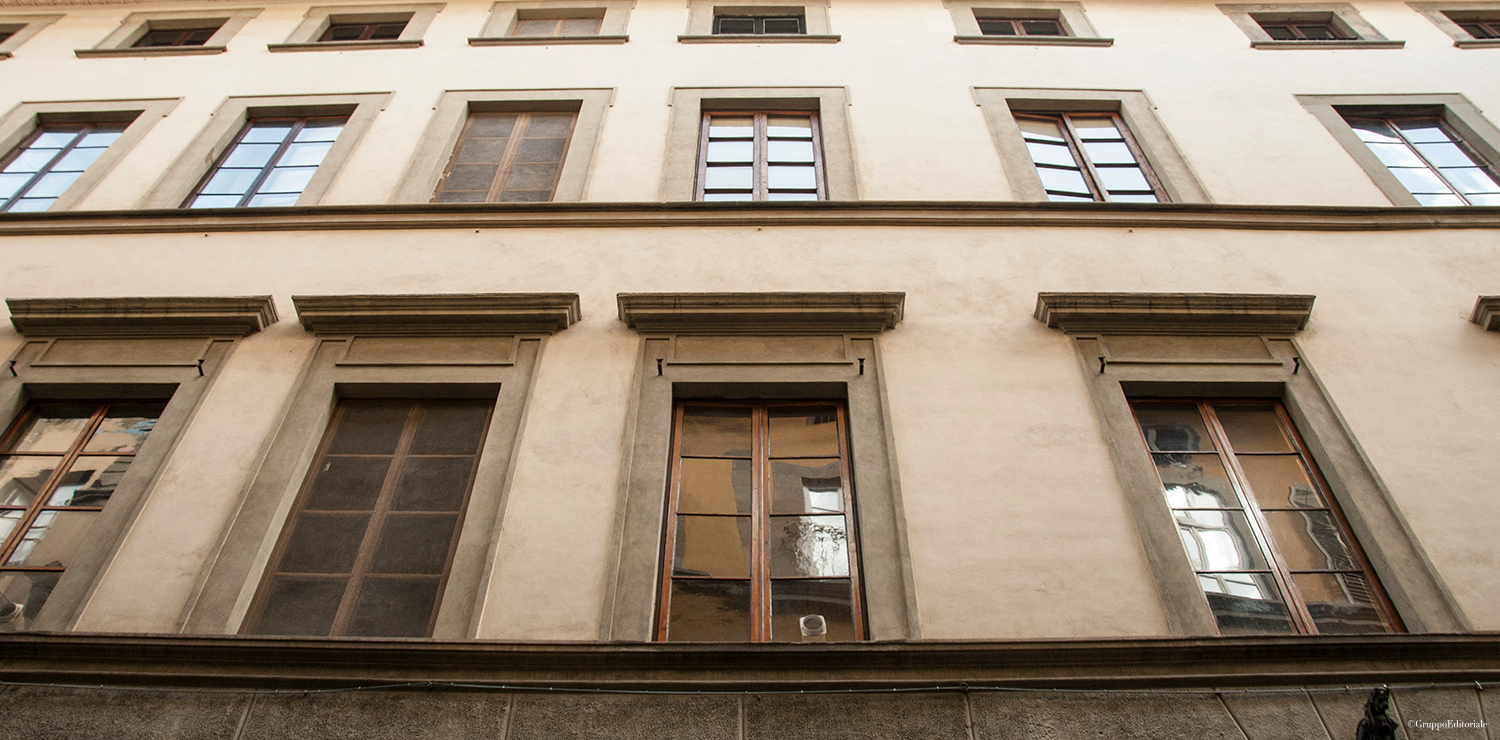 Palazzo Frescobaldi
Palazzo Frescobaldi
Palazzo Frescobaldi
It was built in the 17th century by Matteo Frescobaldi to merge the family’s properties in the area into one beautiful building. The entrance gives onto a gated hallway that leads to a small courtyard decorated with columns.
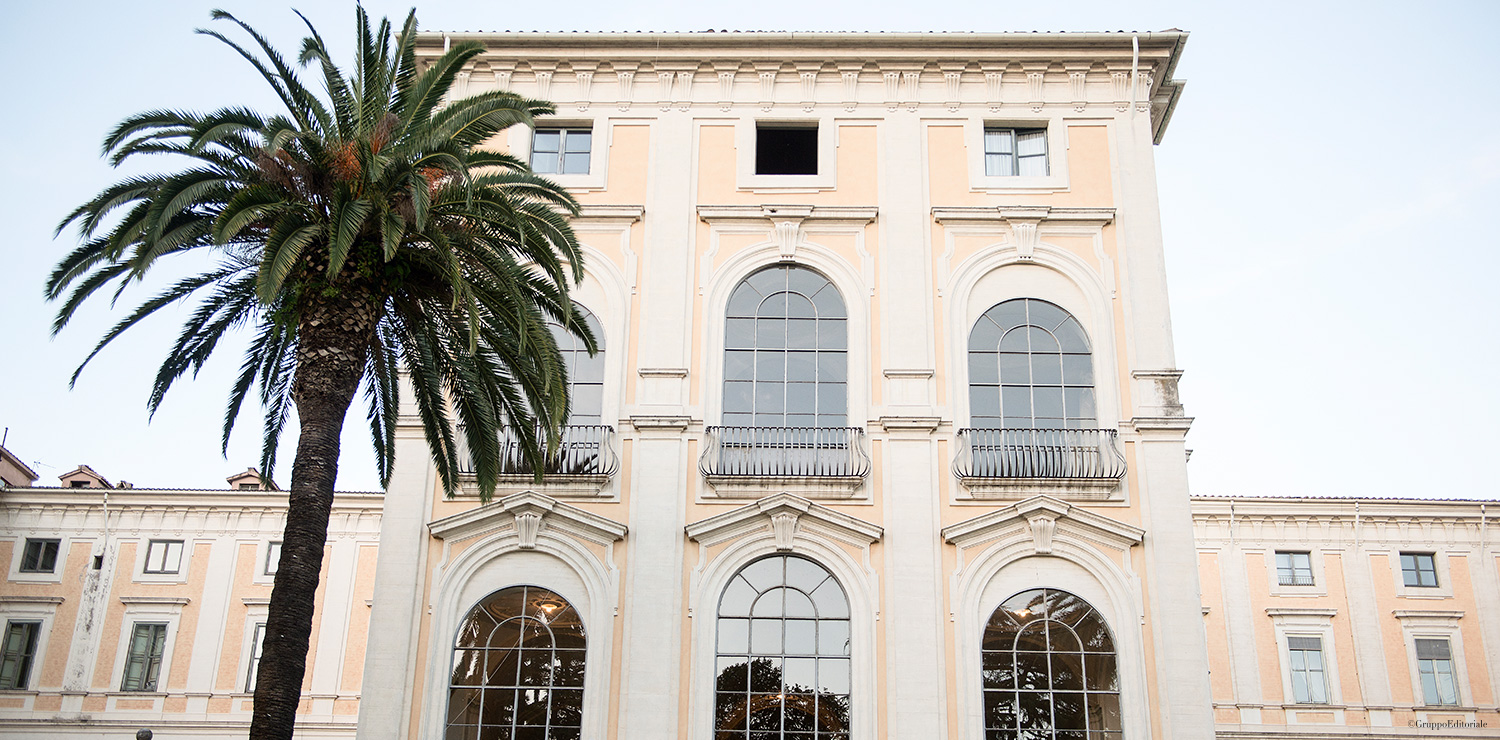 Palazzo Corsini
Palazzo Corsini
Palazzo Corsini
The building’s exterior decoration, carried out between 1692 and 1700, expresses, in all its beauty, one of the highest moments of Florentine painting. Among the painters employed by the Corsini family to decorate it are Anton Domenico Gabbiani, Alessandro Gherardini and Pier Dandini
Palazzo Ricasoli
Purchased by the Ricasoli family in 1480, the building was completed in the early 16th century. In 1565, the palazzo and square facing the building hosted the wedding ceremony of Francesco I de’ Medici and Giovanna of Austria and was home to the Ricasolis until the mid-1700s.
Palagio di Parte Guelfa
Fu sede del partito Guelfo negli anni di scontro con i ghibellini. Sull’ingresso di via del Capaccio si trova la parte attribuita al Brunelleschi, la loggetta aggiunta dal Vasari e uno stemma mediceo in pietra dipinta opera del Giambologna. Sopra il portale della Sala dei Drappeggi si trova una lunetta con la Madonna con il Bambino e due angeli di Luca della Robbia.
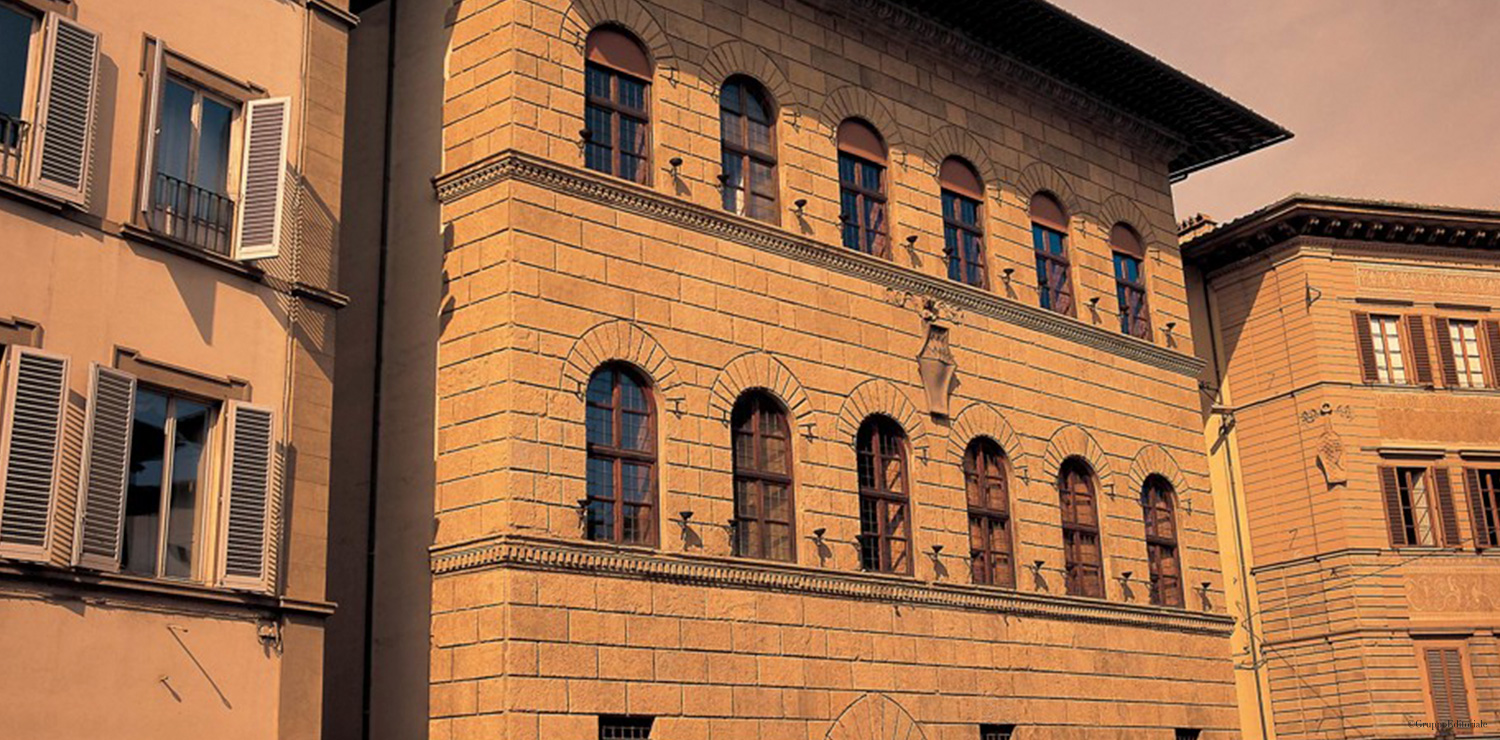 Palazzo Antinori
Palazzo Antinori
Palazzo Antinori
A gem of Renaissance architecture, the fifty-room building has been the private residence and office of Marchesi Antinori since 1506. It was designed and built by Giuliano da Maiano in 1461 and extended by Baccio d’Agnolo in 1543.
Palazzo dell’Antella
The building’s facade is one of the square’s most distinguishing features. The exterior decoration includes a bust of Cosimo II de’ Medici, based on the prototype by Caccini.
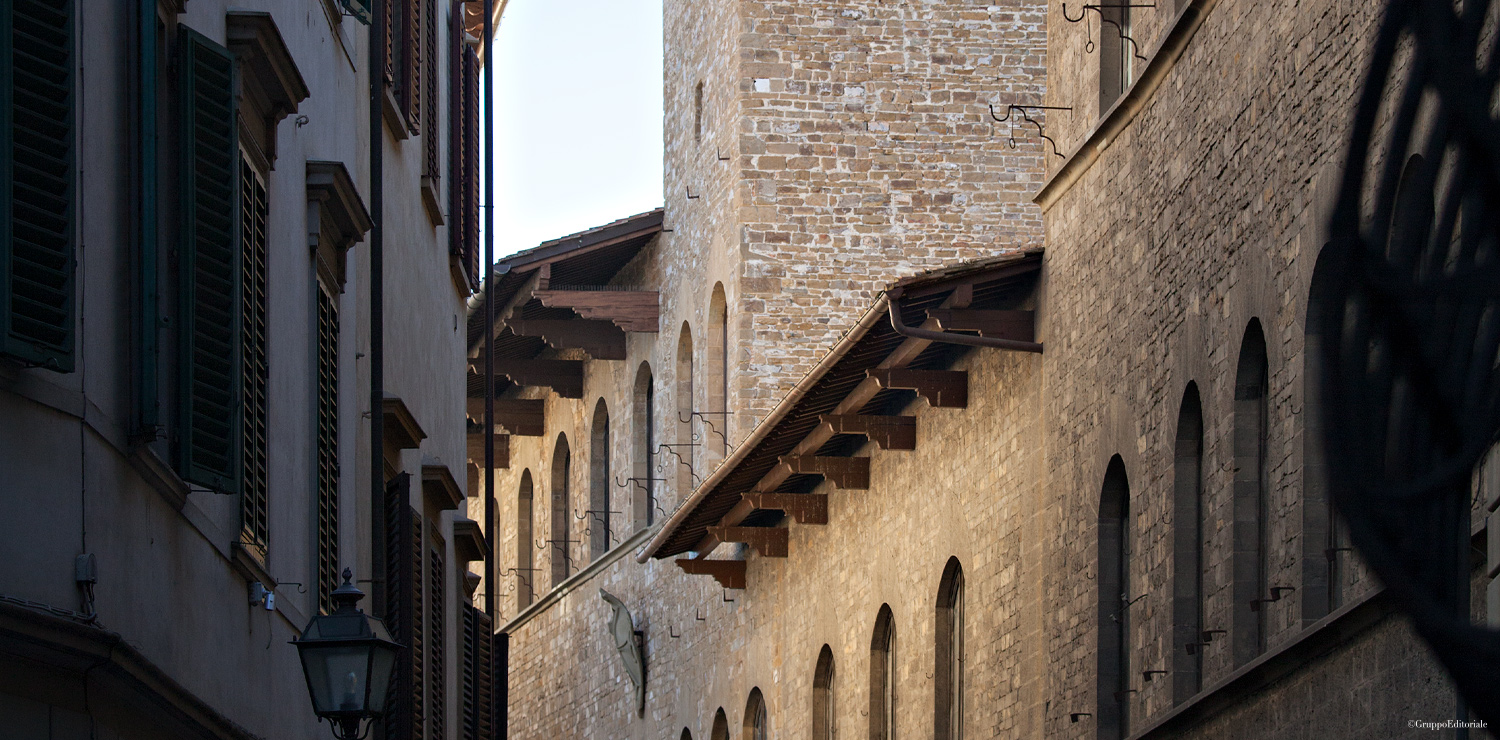 Palazzo Mozzi
Palazzo Mozzi
Palazzo Mozzi
Costruito alla metà del XIII secolo come difesa del Ponte di Rubaconte (che sorgeva dove oggi si trova il Ponte alle Grazie), deve a questo la sua struttura che ricorda quella di una fortezza.
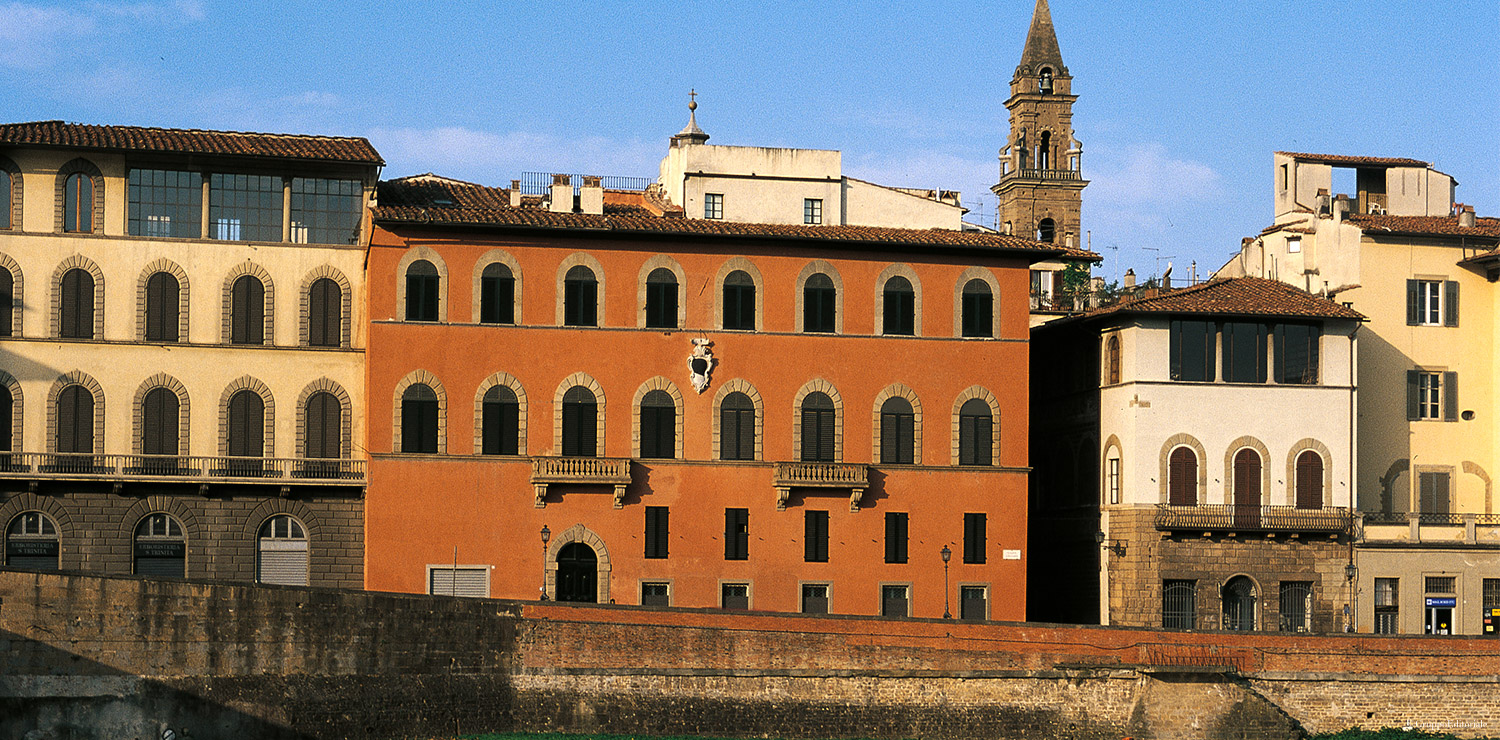 Casa Capponi
Casa Capponi
Casa Capponi
In the mid-1200s, the building housed a workshop on the ground floor and a private residence on the first floor. After going through several ownership changes, in 1769 it was purchased by Marquis Vincenzo Maria Capponi.
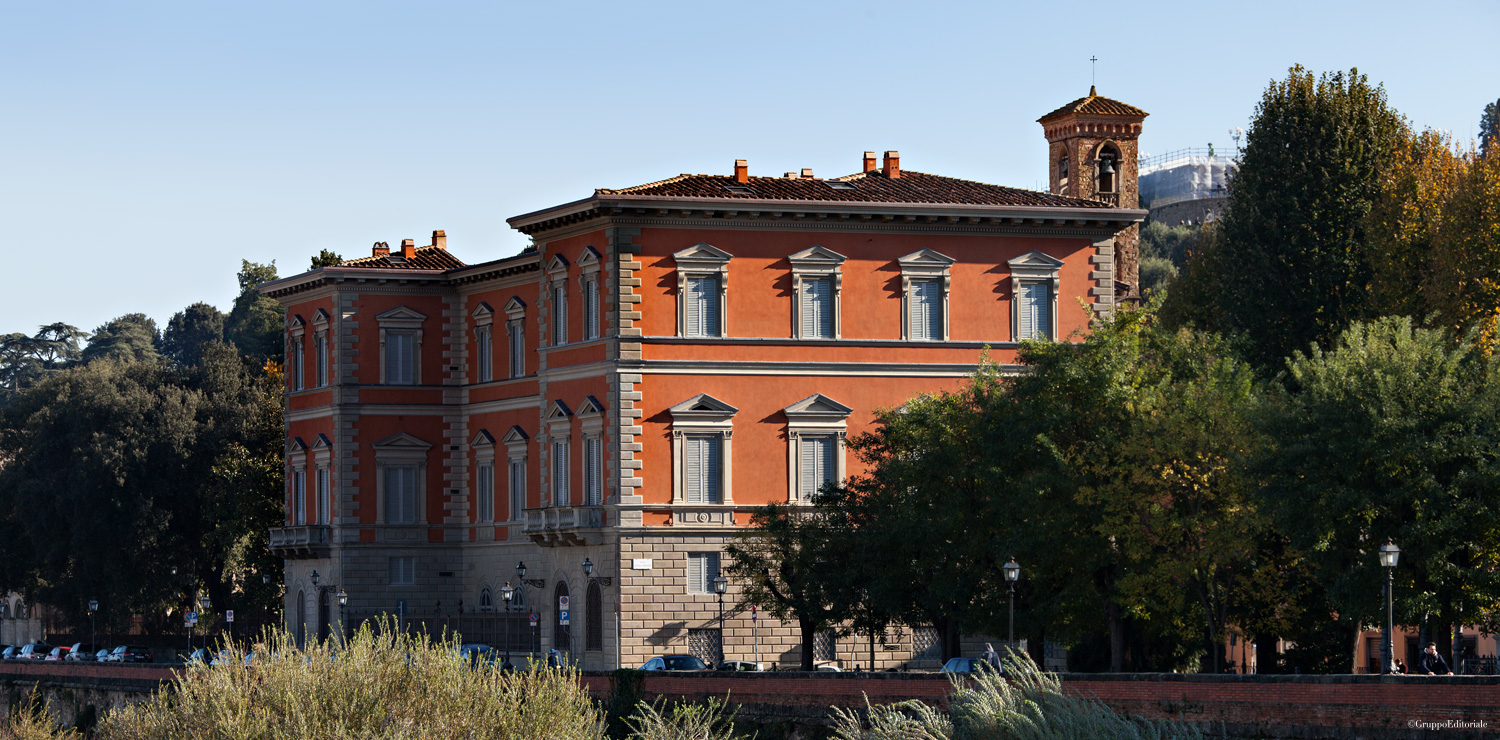 Palazzo Cocchi-Serristori
Palazzo Cocchi-Serristori
Palazzo Cocchi-Serristori
One of the square’s most interesting buildings, facing the church, cube-shaped and with an elegant facade, the result of many changes over the centuries. The original design is by Giuliano da Sangallo, Lorenzo the Magnificent’s favorite architect.






